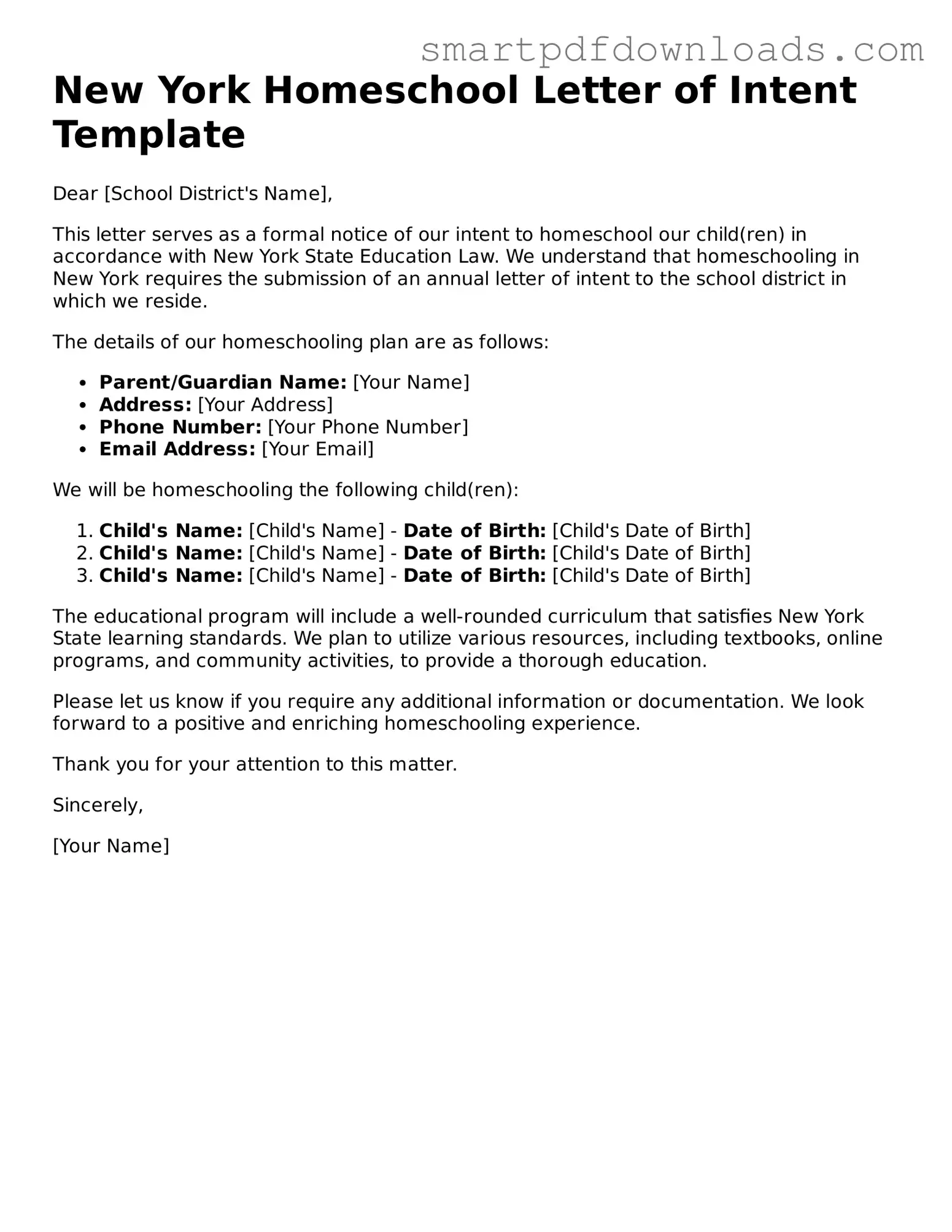Legal Homeschool Letter of Intent Form for the State of New York
The New York Homeschool Letter of Intent is a formal document that parents or guardians must submit to the local school district to begin homeschooling their children. This letter serves as a notification of the intent to educate a child at home, outlining the educational plan and ensuring compliance with state regulations. Understanding this form is crucial for families looking to embark on their homeschooling journey in New York.
Edit Homeschool Letter of Intent Online

Legal Homeschool Letter of Intent Form for the State of New York
Edit Homeschool Letter of Intent Online

Edit Homeschool Letter of Intent Online
or
⇓ PDF File
Finish the form and move on
Edit Homeschool Letter of Intent online fast, without printing.